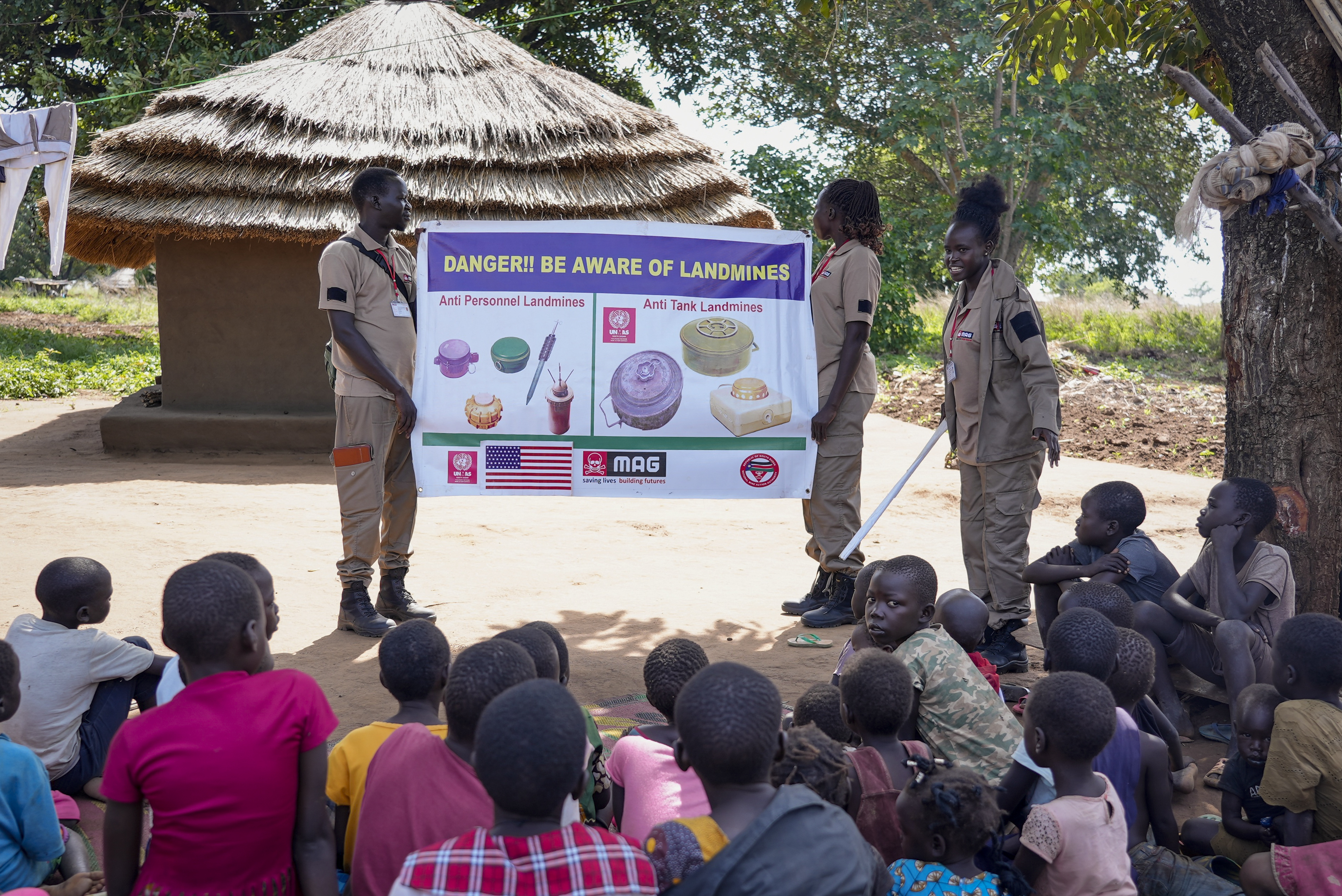02/06/2023 Sudan del Sud
“If you ever come across anything suspicious like this item, please do not pick it up, contact your local law and/or enforcement agency for assistance”.
For the first time since fleeing South Sudan’s civil war eight years ago, Jacob Wani returned home, excited to rebuild his life. But when the 45-year-old farmer tried to access his land in Eastern Equatoria state’s Magwi County, he was banned and told that it had been labelled hazardous as it was full of landmines. “My area is dangerous,” Wani said, standing in his shop in Moli village where he now lives, a few miles from the farm. “I do not have the capacity to rebuild in this place and I am also afraid (of explosives). If I go, maybe something can hurt me.” As South Sudanese trickle back into the country after a peace deal signed in 2018 to end a five-year civil war that killed nearly 400,000 people and displaced millions, many are returning to areas riddled with mines left from decades of conflict. More than 5,000 South Sudanese have been killed or injured by land mines and unexploded ordnance since 2004, according to the United Nations Mine Action Service (UNMAS). South Sudan is trying to clear all anti-personnel minefields and cluster munitions in the country by 2026.
Dear editors, Biography of a bomb is aimed at highlighting the danger caused by unexploded bombs. Moreover, the most important aspect is that we work completely non profit, what drives us is raising awerness about this topic. We make use of your pictures and articles, but we need them to put a context in how findings are done. We trust in your understanding. We will (and we always do) cite the source and the author. We thank you for your comprehension.





